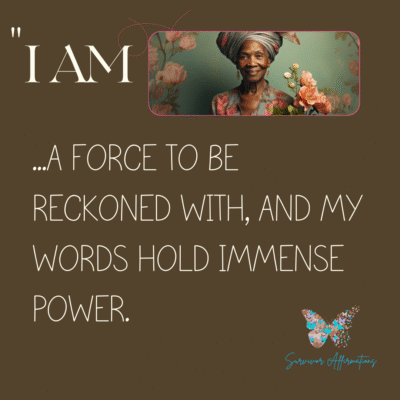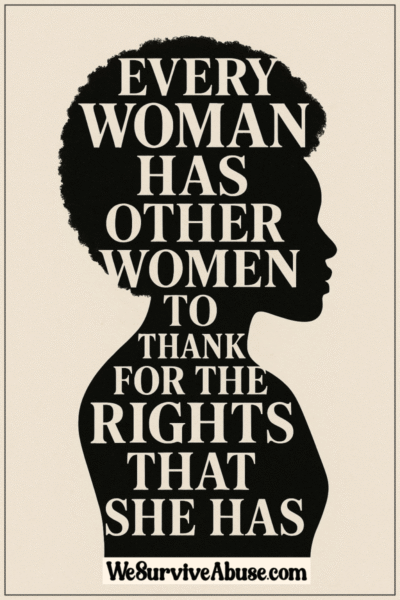There is a lot going on in the world. But crimes against women—especially stalking, coercive control, and violence—don’t take time off. They don’t pau
 There is a lot going on in the world. But crimes against women—especially stalking, coercive control, and violence—don’t take time off. They don’t pause for elections, trends, or shifts in public attention. Every day, women across this country fight for safety, fight to be heard, and fight to be protected by laws that should already be on their side.
There is a lot going on in the world. But crimes against women—especially stalking, coercive control, and violence—don’t take time off. They don’t pause for elections, trends, or shifts in public attention. Every day, women across this country fight for safety, fight to be heard, and fight to be protected by laws that should already be on their side.
And many of these women are leading hard, brave work. They’re lobbying for stronger stalking laws. They’re demanding tougher protections against violence. They’re showing up for all of us.
But there is a painful contradiction that must be named:
Some of these very same women will, in the next breath, accuse other women of “playing the victim.” “Victimhood”
And far too often, those women accused of “victimhood” are poor, Black, Indigenous, disabled, or from other marginalized groups.
Now here’s the thing: it’s possible they don’t hear themselves.
It’s also possible that they do and are therefore choosing to be shields and swords of patriarchy.
Either way, this language is not harmless. It’s the same tool men have used against all women for generations to strip us of credibility and power.
“You’re being dramatic.”
“You just want attention.”
“You’re playing the victim.”
Sound familiar? Surely the phrase, “crying rape” rings a bell.
Because I’ve been sitting right in court when your dating partners and spouses proclaimed that he did not hit you “that hard”. “That’s makeup tricks your honor. That’s not bruises.”
Ran right into women in court (as a court advocate) I went to school with and I will never name names. No shame. Women who stand up for themselves are courageous. We are all women and are vulnerable to male violence even as we lay dead. (I will spare you the details)
Those phrases have long been used to deny women safety in the courtroom, rights in the workplace, and peace in their own homes. So when we hear them from women—especially those fighting for safety alongside us—it stings twice.
Because the truth is, none of us can afford to replicate the very language that was once used to silence us. You can’t protest for women’s rights on Saturday and be silent partners in oppression Monday through Friday.
We need every voice. Every story. Every truth. And every woman brave enough to speak up. Because accusations of victimhood against all women is written in law and policy all in the US and throughout this entire planet ‘sister’. So, we need voices that LISTEN to other women. Voices willing to grow and evolve under the teachings of other women.
 Unflinching truth here: when some women cast doubt on others’ lived pain, they’re not denying anyone’s womanhood. They don’t have that power. To say otherwise is to uphold a racist talking point.
Unflinching truth here: when some women cast doubt on others’ lived pain, they’re not denying anyone’s womanhood. They don’t have that power. To say otherwise is to uphold a racist talking point.
What can be denied, however, is access. Access to safety. To solidarity. To being believed. And that is what this behavior does—it closes doors that should remain open.
Even still. Solidarity can be found in our own communities. Safety, being, believed, and access is exactly what many marginalized women and our allies have continued to work towards for generations. It is necessary and vital work that must never cease.
🔥 Call to Action:
Examine the words we use, especially in our own circles. If we’re fighting for safety, that fight must include women who don’t look or live like us.
Listen more deeply. Ask ourselves why “victimhood” has become such a dirty word—when we know good and well that we have been victims, too. Why applaud one another for using it just like the angry, predatory, and violent males do?
Push for laws that reflect all women’s realities, not just the ones that feel familiar or “safe” to talk about.
Make room at the table for truths we don’t personally relate to, but that are still valid, still sacred, and still urgent.
 We’re not here to trade in supremacy for safety.
We’re not here to trade in supremacy for safety.
We’re here to build safety that includes truth—raw, complex, truth.
So for those of us who aspiring to be true to this-because we are all human and therefore subject to flaws- let’s be careful not to echo the voices that still tell us we are too much, too broken, too emotional, too loud.
Let’s not become the reason another woman doesn’t feel safe telling her story.
We don’t silence women to win.
We don’t shame women to make space.
And we don’t use “victimhood” to protect patriarchy—no matter what outfit it wears.
